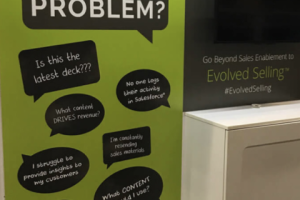
“I love it when a plan comes together”.
We like that familiar catchphrase, too. Especially after a successful client inititiative.
But at the beginning of a potential new client relationship, we like the phrase, “We love it when clients have marketing plans”.
Why? Because reviewing and digesting a current marketing blueprint enlightens the agency about your business. This can help speed understanding of issues, and ultimately develop and implement your communications program.
So, your prospective agency should ask to see a formal business and/or marketing plan.
Now, that’s not say you need to share a thick binder that spells out every bit of data-driven minutia (Although, that would be incredibly helpful). Simply presenting a general idea of what company proposes to enhance its business outlook going forward can help hasten development of the plan to get there.
That said, would it surprise you that many businesses don’t have a formal written business plan, let alone a marketing plan? For too many companies, those formal documents don’t exist.
Based on our own experience, we looked back at the 100 or so prospects we’ve met with over the last 15 years. Of those companies, how many would you guess had formal written plans at their fingertips?
50? 30? 20?
It was two.
As an agency that designs marketing strategies, we excel at collaborating with clients to facilitate soup-to-nuts marketing programs. But we fully recognize how much faster we can get to the execution phase when even basic company intelligence is at our fingertips.
So, if you’re evaluating marketing firms, and don’t have a formal marketing plan to share, you can help make meetings more productive by having the answers to the following elements in place. The good news is you likely have much of this either in your head or collectively across your firm. Coalescing information that includes the following in one place will be a benefit in and of itself.
You have important overall targets for your business, such as sales goals (percentage growth, general revenue, and associated bucket numbers), current and new client objectives, specific internal plans or changes you want to put into place. You’ll have measurable actions in mind to achieve those goals.
These are the various internal and external barriers you face – as well as the opportunities – to current and future success.
Present the individuals, groups, customer categories and organizations with which you want to do business. Ideally, you’ll also have a grasp on buyer personas and influencers on the sale. What are your market assumptions based on your experience, and what dynamics are at play?
There are those companies with which you compete directly and possible alternative providers your targets could turn to. Exactly how does your firm stack up against these competitors? Why should buyers choose you over others?
Once the above data points are captured, you can set out your marketing communications objectives for the quarter, six months, or the full year. Rather than creating broad goals, these should tie directly to your business objectives and therefore be as specific and measurable as possible. Here is where the agency you choose can provide value, identifying clear objectives, followed by the right strategies and tactics.
You occupy a unique space within your market. Express how you are distinctive in the way you solve the problems your customers face. In highly commoditized markets, share what you think are your nuggets of differentiation. To communicate most effectively, you should create a brand story and key message points specific to each targeted buyer. (See our article, Why Messaging is Your Most Important Job), for more insights on this topic.)
For each of these categories, consider not just the “who” and the “what” but the supporting rationale behind your responses. Anticipate the agency will likely follow up with “why.”

Demanding an innovative departure from predictable product introductions, USG tapped Element-R to help unveil new, patented technology.
We created a high impact event for industry leaders by an industry leader, using several non-traditional elements to make the launch distinctive:
The event achieved the objectives of generating excitement around the new technology while seeding long-term market interest among the 70+ guests from 35 companies. The majority of survey respondents rated the event as outstanding.

In the early days of personalized medicine, few people understood the new science of pharmacogenetics – how medicines interact with an individual’s genes, often causing avoidable side effects. YouScript software by Genelex (now owned by Invitae) was a pioneering technology giving physicians detailed input on these interactions for the benefit of patients.
To gain industry media attention for the relatively unknown company, Element-R recommended a purely educational webinar for the media only. Delivered entirely by an M.D., the webinar effectively informed editors and reporters about the topic – with a bonus: several covered the burgeoning science and the company’s leadership in feature-length articles.

All high-end professional AV and event staging companies show off their best events to attract prospects. Stage Right, Inc. needed to revitalize its digital doorstep and deliver key differentiators.
Element-R created a new, from the ground up website that made the company stand out on two fronts. First, instead of simply showing off glitz, we organized and showcased its capabilities by category, allowing prospects to identify and pair their challenges with a clear solution. Second, we branded and spotlighted the company’s proprietary planning protocols, now known as StageCraft™. Stage Right, Inc. has a modern, responsive site that places its distinctive competencies out front.

When the nation’s oldest senior living community in the U.S. needed to reinvigorate its marketing, Element-R Partners helped Three Crowns Park play to its strengths in a crowded marketplace.
Through a deep dive with residents and staff, we developed messaging that appealed to retirees who don’t want to live in a cold institution or ritzy resort/hotel setting. The new website faithfully presents this welcoming and close-knit community of friendship and relaxed, suburban style living.

To meet a changing world of special education with funding and competitive challenges, the O-School needed to reacquaint its many publics about the organization’s mission and capabilities.
Interviewing staff and multiple influencer groups, Element-R developed a “messaging playbook” that served as the basis for all aspects of its external communication to encourage student enrollment and support funding. The backbone of this effort were two new websites, www.oschool.org and www.bw-center.org, creating a cohesive presence for the School in all of its materials, and bringing it into the 21st Century.
 Go bold! Evolved Selling™ software maker Mediafly offers a sophisticated content management and sales enablement solution to organizations worldwide. To really make a statement at its channel partners’ annual conferences, Dreamforce and Sapphire, Mediafly nixed the typical descriptive booth copy, instead drawing visitors in with bold problem statements its audience could relate to.
Go bold! Evolved Selling™ software maker Mediafly offers a sophisticated content management and sales enablement solution to organizations worldwide. To really make a statement at its channel partners’ annual conferences, Dreamforce and Sapphire, Mediafly nixed the typical descriptive booth copy, instead drawing visitors in with bold problem statements its audience could relate to.
Together with design partner DoubleTake Design, Element-R developed channel partner messaging and several alternative creative concepts for the booth. We couldn’t have been happier that Mediafly selected this unusual and compelling way to present itself. Traffic was steady at the booths as visitors walked up to say, “can you really solve that problem for us?” The creative concept continues to be used successfully to bring attention to Mediafly’s many capabilities – proving that B2B marketing doesn’t have to be boring!